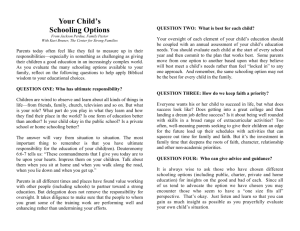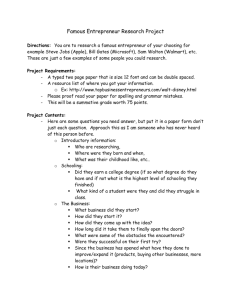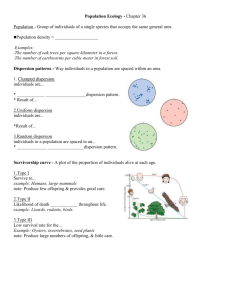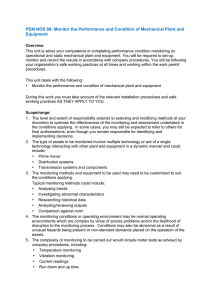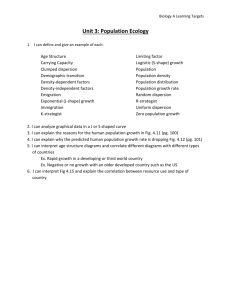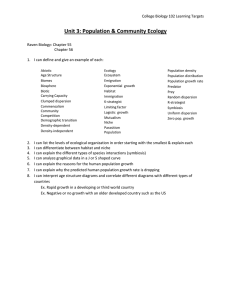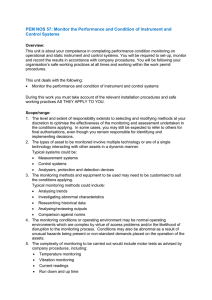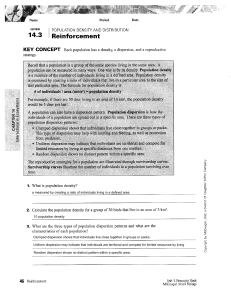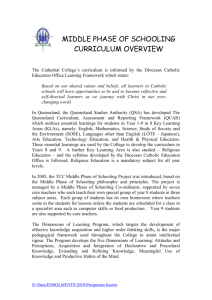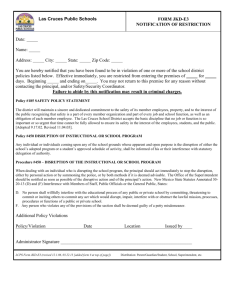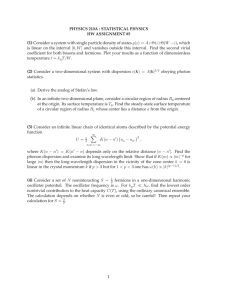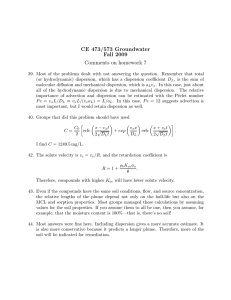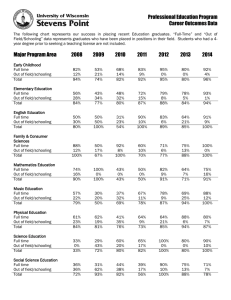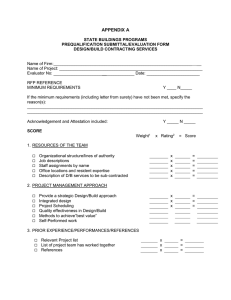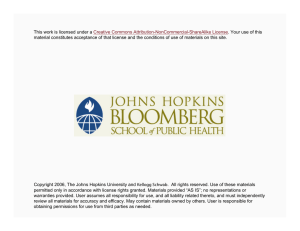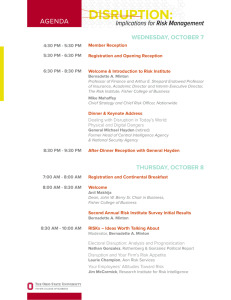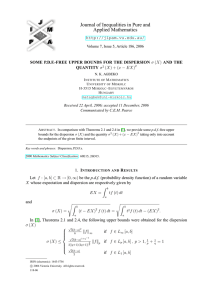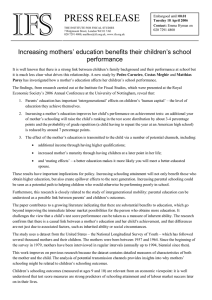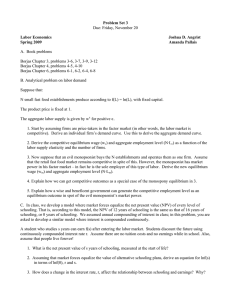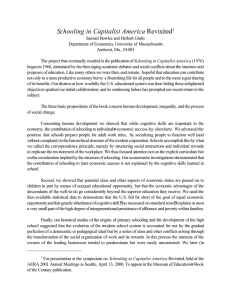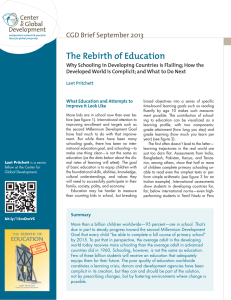The Future of Executive Development
advertisement
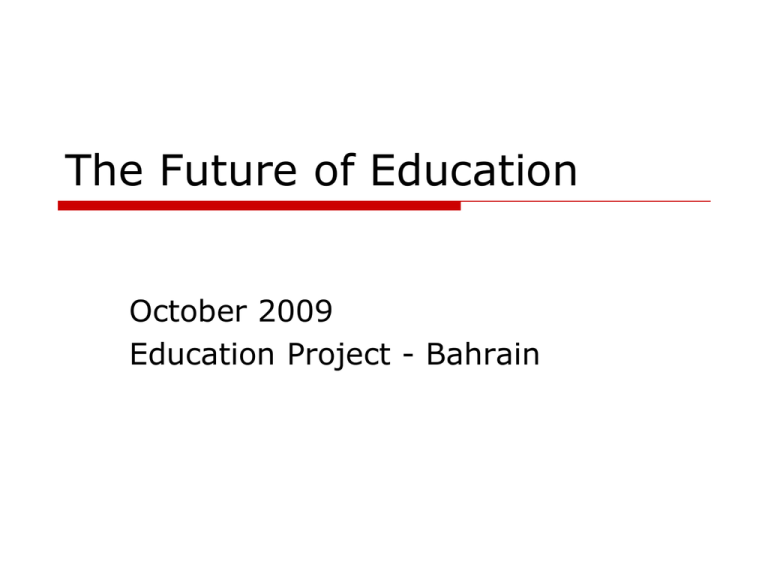
The Future of Education October 2009 Education Project - Bahrain Education in India 19 % of the total primary schools are single teacher schools in India catering to nearly 12% of the total enrolment in primary classes Average Pupil Teacher Ratio for All India is 1:42 Teacher absence rate ranges from 15% in Maharashtra to 42% in Jharkhand Only 47 out of 100 children enrolled in class I reach class VIII ie dropout rate of 52.79 % 42 million children in the age-group 6-14 years, do not attend school • country do not have facilities of 16.64 per cent villages of the primary schooling inadequate school infrastructure non-availability of teachers in remote rural, hilly and tribal areas high teacher absenteeism large scale teacher vacancies inadequate allocation of resources on education Education in India Bridgeway Group Schools 1’st school started in 1994 in India Today 6 schools (2 in India and 4 in Saudi Arabia) with over 7000 students 1 school in India with over 1000 students exclusively for students without means for quality education Plan to have 25000 students over next 5 years For two paying students, one student to be educated free Rip Van Winkle Current Environment Globalization is here to stay Neo medievalism and Post Colonial Entropy Political uncertainty Redrawing & Overhaul of existing Paradigms & beliefs Factory model of schooling Top Down Pedagogy Tyranny of Discipline Information Anxiety Linear, book based Green not just desirable but non negotiable Global Community/Society imperative Virtualisation, Dispersion, Disruption – Technological, Societal The leader of the past was someone who knew how to tell. The leader of the future will be someone who knows how to ask. Peter Drucker Tommorrow’s Citizen… Contributor to society not just family Able to manage in complex environments with global scope and scale while still appreciative of local culture Geopolitical savvy Compete intensely but fairly Embrace technological change, be the change agent Evangelist, standard setter, leader by example of highest standards of global citizenship Future Challenges Obama Mark Hurd Tiger Woods Gandhi Mohammed Yunus The Future Non Linear mode of instant messaging, hypersurfing through google hits etc Memorizer of facts and principles to that of a researcher, problem-solver, and strategist “keep your eyes on your own paper ” value of independent scholarship will be augmented with learning communities and cooperative workgroups Big-concept thinking, systemic analysis, and model building will replace less useful memorization of disconnected facts e-learning will morph from today’s textbook-imitative exercises to sophisticated algorithm based models of concept presentation, simulation, correction, and review Global database to Global “learningbase,”indexed with generations of recursive commentary, a kind of “Global Talmud” Principles of Web 1.0 Reading, Receiving, Researching Principles of Web 2.0 Contributing, Collaborating, Creating Future of Education Bright but Complex, Challenging, Failure Prone Cognitive Psychology, Ethics, Geopolitics, Behavioral Economics, Environmental Sciences Disruption, Creative Destruction, Dispersion mohan@sentientconsulting.in

